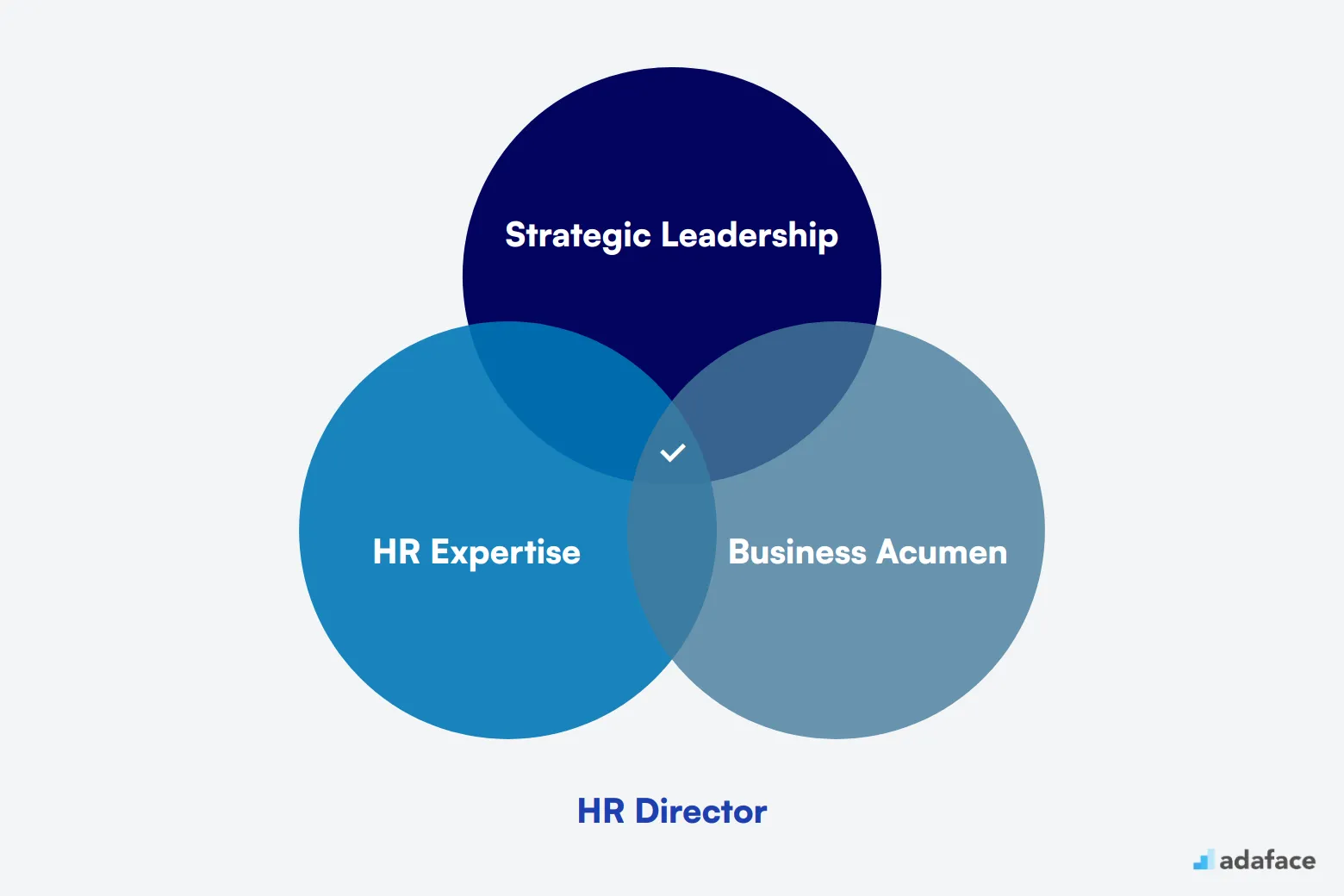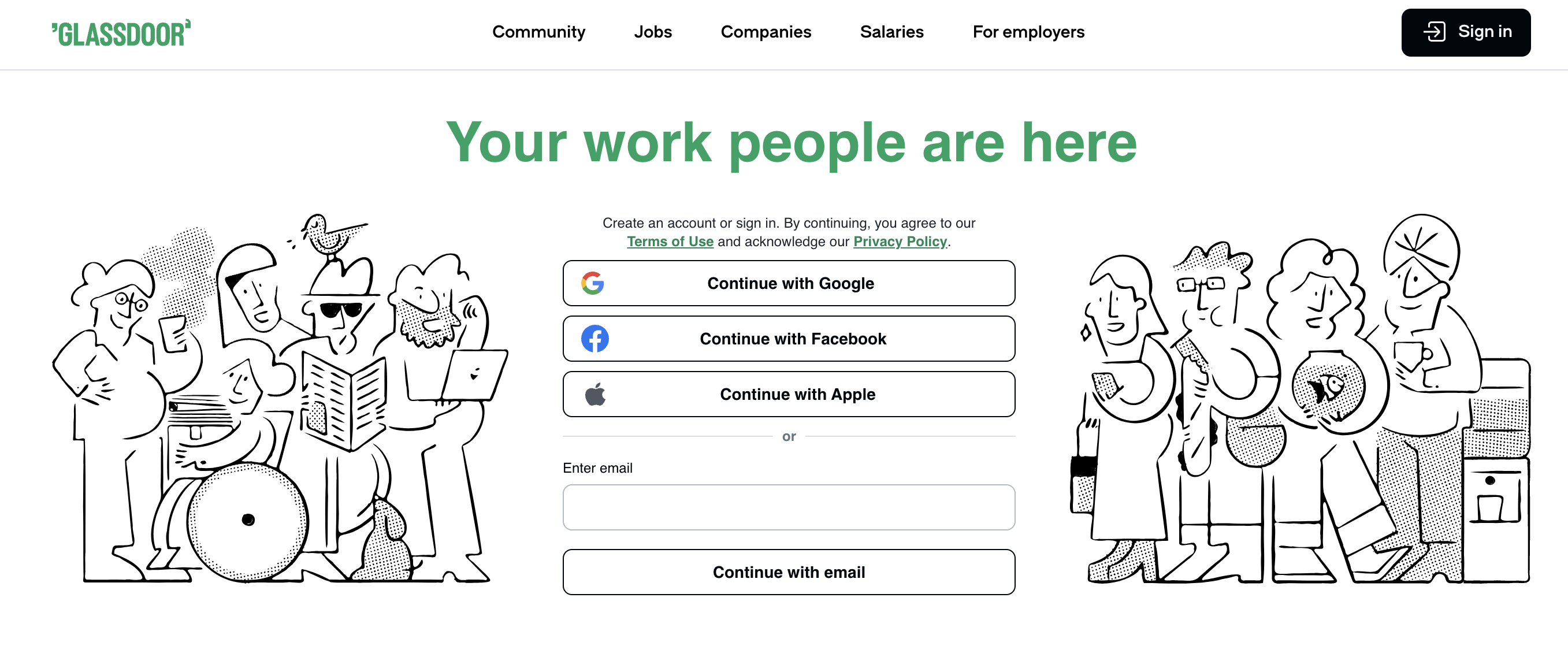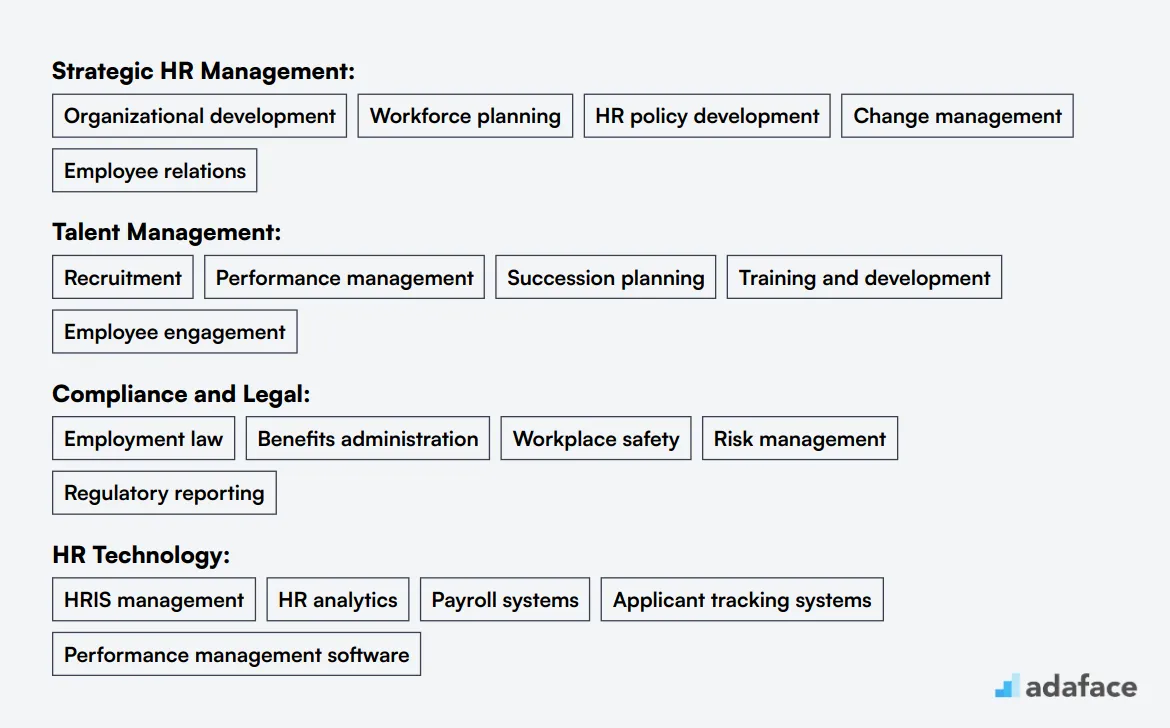Hiring an HR Director is a critical task that can shape the future of your organization's human resources strategy. Many companies underestimate the impact this role can have on employee engagement, talent acquisition, and overall business performance. A skilled HR Director not only manages day-to-day HR operations but also aligns human capital initiatives with broader business goals, fostering a positive workplace culture and driving organizational success.
This comprehensive guide will walk you through the process of hiring an exceptional HR Director. We'll cover everything from identifying key qualifications to structuring effective interviews and making the final selection. To ensure you're using the best tools for candidate assessment, check out our HR skills assessment test designed specifically for evaluating HR professionals.
Table of contents
Why Hire an HR Director?
An HR Director can help solve critical people-related challenges in your organization. Start by identifying key issues like high turnover rates, lack of employee engagement, or ineffective talent acquisition strategies that need addressing.
Consider the following scenarios where an HR Director could make a significant impact:
- Developing and implementing a comprehensive talent management strategy
- Aligning HR initiatives with overall business goals
- Improving employee relations and workplace culture
If your company is experiencing rapid growth or facing complex HR challenges, it may be time to hire a full-time HR Director. For smaller organizations or those testing the waters, consider working with an HR consultant to assess your needs before committing to a full-time hire.

Key Skills and Qualifications for an HR Director
Hiring an HR Director can be tricky, as the right fit for one organization may not align with another's needs. It's important to distinguish between required and preferred qualifications, as overlooking this can lead to mismatched expectations.
When crafting the candidate profile, consider the following skills and qualifications that are important for the role:
- Required Skills and Qualifications:
- Bachelor's degree in Human Resources or related field
- 5+ years of experience in HR management roles
- Strong knowledge of labor laws and HR best practices
- Excellent leadership and communication skills
- Experience with HRIS and ATS systems
- Preferred Skills and Qualifications:
- Master's degree in HR or MBA
- SHRM-CP or SHRM-SCP certification
- Experience in talent acquisition and development
- Knowledge of data analytics and HR metrics
- Experience in a similar industry
| Required skills and qualifications | Preferred skills and qualifications |
|---|---|
| Bachelor's degree in Human Resources or related field | Master's degree in HR or MBA |
| 5+ years of experience in HR management roles | SHRM-CP or SHRM-SCP certification |
| Strong knowledge of labor laws and HR best practices | Experience in talent acquisition and development |
| Excellent leadership and communication skills | Knowledge of data analytics and HR metrics |
| Experience with HRIS and ATS systems | Experience in a similar industry |
10 Platforms to Hire HR Directors
Now that you have a detailed job description for the HR Director role, it's time to list it on job platforms where qualified candidates are actively seeking opportunities. Listing on targeted job sites can streamline your recruitment process and connect you with professionals who match your requirements.
Ideal for full-time positions due to its vast professional network and advanced recruiting tools tailored to HR roles.

Indeed
Useful for a broad reach with millions of job seekers across various industries looking for full-time opportunities.

Glassdoor
Best for companies wanting to showcase their work culture to attract HR directors through company reviews and insights.

To further expand your search beyond the first three platforms, consider utilizing other well-known sites. Upwork is ideal for freelance HR directors, while FlexJobs caters to remote positions with flexibility. Monster offers a wide reach, and The Ladders specializes in senior executive roles. ZipRecruiter distributes your job ad across multiple boards, and Recruiter.com provides access to a vast pool for part-time positions. Lastly, for those hiring remote roles, We Work Remotely focuses exclusively on remote opportunities. For additional insights into recruitment strategies, explore our comprehensive guide.
How to Screen HR Director Resumes
When hiring for the HR Director role, resume screening is a practical first step to manage the influx of applications. This process helps you narrow down your candidates, ensuring you only proceed with those who fit the basic prerequisites and expectations outlined in your job description.

For a manual approach, begin by identifying key terms related to the HR Director role. Look for words like "leadership," "HRIS," and "strategic planning," which indicate someone with a strong background in HR management. Focus on both must-have skills like HR expertise and preferred qualifications such as SHRM certification. This helps in promptly filtering out resumes that lack relevant experience.
Alternatively, you can utilize AI tools like language models to aid in screening. These tools can quickly parse resumes, highlighting the presence of important keywords and providing a preliminary assessment of candidate fit. This method saves time and ensures a thorough screening of each application.
Here's a handy AI prompt to streamline the screening process:
TASK: Screen resumes to match job description for HR Director role
INPUT: Resumes
OUTPUT: For each resume, provide following information:
- Email ID
- Name
- Matching keywords
- Score (out of 10 based on keywords matched)
- Recommendation (detailed recommendation of whether to shortlist this candidate or not)
- Shortlist (Yes, No, or Maybe)
RULES:
- If unsure about a candidate's fit, assign Maybe instead of No
- Keep recommendations concise.
KEYWORDS DATA:
- Bachelor's degree in Human Resources
- 5+ years of HR management experience
- Labor laws
- HRIS
- Strategic Leadership
Which skills tests should you use to assess HR Directors?
Skills tests are a great way to evaluate the capabilities of potential HR Directors. These assessments provide a deeper understanding of a candidate's abilities beyond what a resume can show. Here are a few recommended tests for assessing HR Directors:
HR Test: Use the HR Test to gauge candidates' understanding of human resources principles, compliance, and practices. This test ensures they have the foundational knowledge needed for the role.
Leadership Psychometric Test: Assess their leadership style and capability with the Leadership Psychometric Test. This helps identify if the candidate's leadership approach aligns with your organization's culture.
Communication Test: Strong communication is key for HR Directors. The Communication Test measures a candidate's ability to articulate ideas clearly and effectively, which is crucial for managing teams and resolving conflicts.
Situational Judgement Test: The Situational Judgement Test is useful to evaluate how candidates handle real-world HR scenarios. It reveals their decision-making and problem-solving skills.
Critical Thinking Test: Use the Critical Thinking Test to assess a candidate's ability to analyze information and make sound judgments. This is important for strategic planning and HR policy development.
Effective Case Study Assignments for Hiring HR Directors
Case study assignments are a popular tool for evaluating potential HR Directors, providing insights into a candidate's problem-solving abilities and strategic thinking. However, these assignments can be lengthy and may deter some candidates due to the time commitment involved. Additionally, there's a risk of losing talented applicants who might be put off by the demanding process. Despite these challenges, case studies can reveal the depth of a candidate's understanding of human resource management.
Strategic HR Planning Case Study: This assignment involves candidates developing a comprehensive HR strategy for a hypothetical organization facing specific challenges, such as high turnover or diversity issues. It tests their ability to align HR objectives with the company's goals. For more on crafting an effective HR strategy, see importance of human resource management.
Employee Engagement Analysis: Candidates examine a scenario where employee engagement is low and propose actionable solutions to boost morale and productivity. This task assesses their analytical skills and understanding of talent management.
Performance Management System Design: This case study requires candidates to design a performance management system tailored to a company's needs. It gauges their capability to create assessment frameworks that align with organizational objectives and improve employee performance. For insights on role-specific tasks, explore role-specific tests.
How to Structure Interviews for Hiring HR Directors
Candidates who pass the initial skills tests should proceed to the interview stage where their capabilities can be thoroughly evaluated. Skills assessments are effective for filtering out unsuitable candidates, but interviews provide a deeper understanding of a candidate's fit for the role. During the interview, hiring managers can assess candidates' technical skills and determine their potential contribution to the organization.
Here are some recommended questions to ask during the HR Director interviews:
- Can you discuss your experience with workforce planning and development? It helps gauge their ability to forecast and plan for HR needs.
- How do you stay updated with changes in labor laws and regulations? This question assesses their commitment to compliance and knowledge of HR legislation.
- Describe a challenging HR situation you faced and how you resolved it. This reveals their problem-solving skills and adaptability.
- How do you ensure effective communication across departments? This assesses their ability to facilitate communication and collaboration.
- What strategies do you use to improve employee engagement? Understanding their approach to engagement is key to ensuring a motivated workforce. You can find more such HR Director interview questions here.
What's the difference between an HR Director and an HR Business Partner?
While HR Directors and HR Business Partners are both important roles in the HR landscape, they serve distinct functions that often lead to confusion among recruiters and hiring managers. This is especially true because both positions involve strategic HR initiatives and working closely with various business units.
An HR Director typically focuses on high-level HR strategy and operations. They report directly to the CEO or COO and hold policy and decision authority within the company. Their primary responsibilities include overseeing the HR department, ensuring HR systems are in place, and driving the overall HR efficiency and effectiveness. Key skills in this role include leadership and strategic planning.
On the other hand, an HR Business Partner operates more as an advisor, aligning HR practices with the goals of specific business units. They report to the HR Director and are primarily focused on supporting business unit success through consultation and relationship building. Their role is more collaborative, working closely with teams to implement HR strategies that drive targeted business outcomes. For more information on the skills required for an HR Generalist, which align closely with the HR Business Partner role, check out our detailed blog post.
| HR Director | HR Business Partner | |
|---|---|---|
| Strategic Focus | High-level HR strategy | Align HR with business goals |
| Reporting Structure | Reports to CEO or COO | Reports to HR Director |
| Decision-Making | Policy and decision authority | Advisory role in decisions |
| Team Management | Oversees HR department | Collaborates with teams |
| Primary Focus | HR operations and systems | Business unit HR support |
| Key Skills | Leadership, Strategic Planning | Consultation, Relationship Building |
| Primary Goal | HR efficiency and effectiveness | Business unit success |
| Career Path | Senior HR Management | Specialized HR Roles |
What are the ranks of HR Directors?
Many organizations have different hierarchies within their HR departments. Understanding these ranks can help recruiters and hiring managers better assess candidates for HR Director positions and align them with the right level of responsibility.
- HR Manager: This is typically the first step towards an HR Director role. HR Managers oversee daily operations, implement policies, and manage a small team of HR professionals.
- Senior HR Manager: With more experience, HR Managers may progress to Senior HR Manager roles. They often handle more complex HR issues and have a broader scope of responsibilities.
- HR Director: HR Directors are responsible for developing and executing HR strategies aligned with business objectives. They usually report to the Chief Human Resources Officer (CHRO) or CEO.
- Vice President of HR: This role often exists in larger organizations. VPs of HR typically oversee multiple HR functions or regions and play a key role in shaping company-wide HR policies.
- Chief Human Resources Officer (CHRO): The highest-ranking HR position, CHROs are part of the executive team and directly influence company strategy and culture at the highest level.
Hire the Best HR Directors for Your Team
Throughout this guide, we've explored the importance of hiring an HR Director, examined the key skills and qualifications for the role, discussed various platforms for recruitment, and outlined effective screening and interview strategies. We've also differentiated between an HR Director and an HR Business Partner, and reviewed the ranks within the HR hierarchy.
To ensure you bring on the best HR Director, the key takeaway is to use precise job descriptions and relevant skills tests. Using the right assessments, like the HR Test, can significantly improve the accuracy of your hiring process. By focusing on these elements, you can build a strong foundation for a successful HR team.
HR Test
FAQs
Key skills for an HR Director include strategic thinking, leadership, communication, problem-solving, knowledge of HR laws and regulations, talent management, and business acumen. They should also have experience in organizational development and change management.
To assess strategic thinking, use case studies or scenario-based questions during the interview process. Ask candidates to outline their approach to aligning HR initiatives with business goals or to describe how they've implemented long-term HR strategies in previous roles.
An ideal HR Director should have at least 7-10 years of progressive HR experience, including several years in a leadership role. They should have a track record of successfully managing HR teams, implementing HR policies, and driving organizational change.
Use behavioral interview questions and role-playing scenarios to assess their conflict resolution skills, empathy, and discretion. Ask for examples of how they've handled complex employee relations issues in the past, ensuring they maintain confidentiality while explaining their approach.
Look for candidates with a bachelor's degree in Human Resources, Business Administration, or a related field. Many HR Directors also hold master's degrees or professional certifications such as SHRM-SCP or SPHR. Industry-specific experience can be valuable depending on your organization's needs.
Ask candidates to describe their philosophy on company culture and provide examples of initiatives they've led to improve employee engagement and workplace culture. Look for evidence of their ability to influence leadership and implement culture-building programs.
Utilize skills assessment tests specifically designed for HR professionals. These can evaluate knowledge of HR laws, policies, and best practices. Additionally, scenario-based questions during interviews can help assess how they apply this knowledge in practical situations.

40 min skill tests.
No trick questions.
Accurate shortlisting.
We make it easy for you to find the best candidates in your pipeline with a 40 min skills test.
Try for freeRelated posts
Free resources



